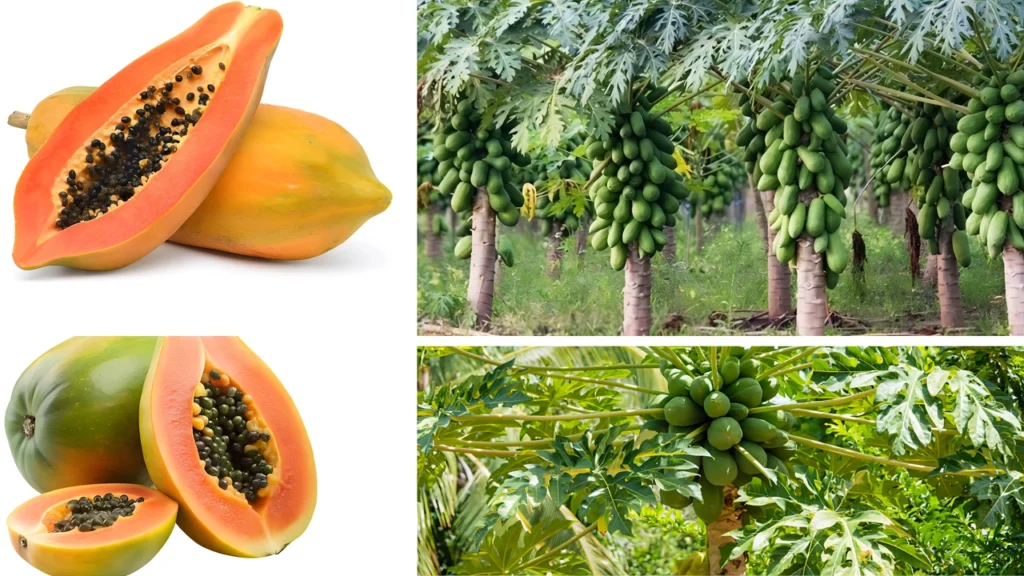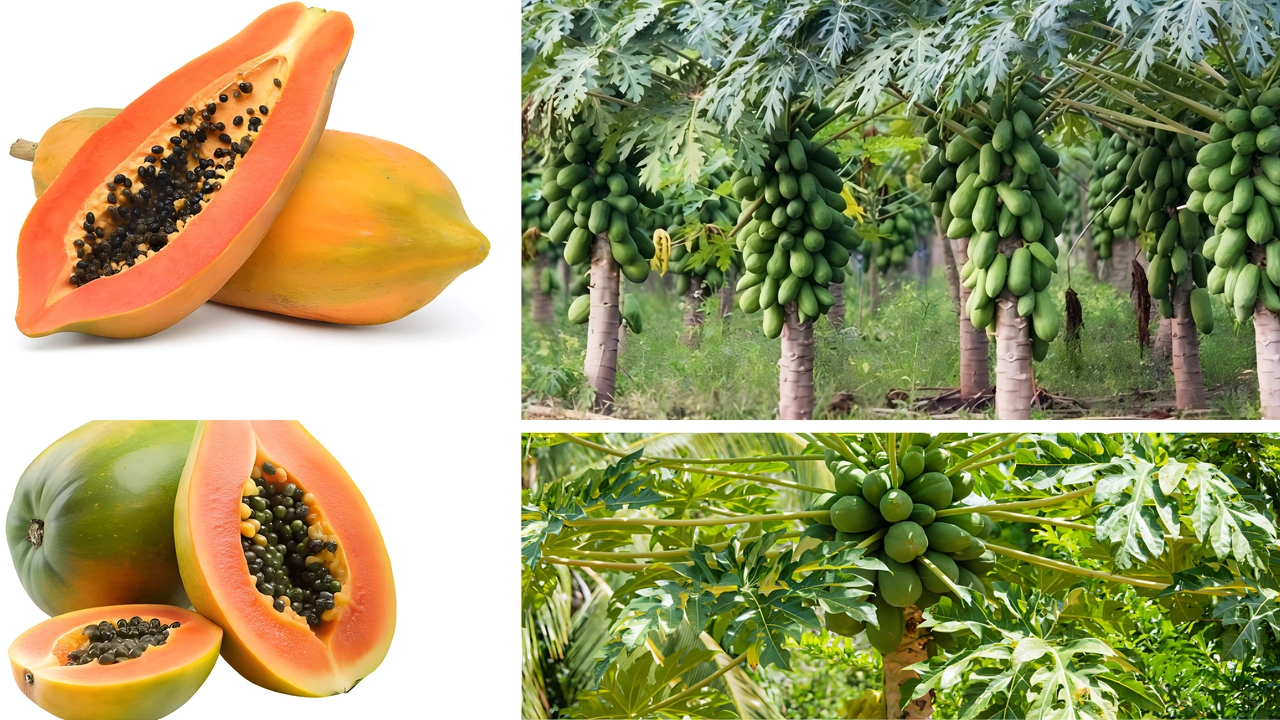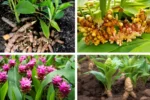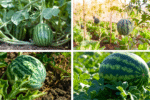Join on WhatsApp
Get the latest updates directly on WhatsApp – motivation, news & more!
Introduction: What Makes a Top-Quality Papaya Producer?
A top-quality papaya producer is more than just a farm growing tropical fruit — it is a source of fresh, flavorful, and sustainably grown papayas delivered straight from the farm to consumers, retailers, and international markets. The journey from seed to harvest is guided by experience, responsible agricultural practices, and a commitment to quality. A reliable papaya producer ensures that every papaya reflects the natural sweetness, vibrant color, and rich nutrition that this fruit is known for. Whether serving local markets or exporting globally, the goal is clear: produce papayas of the highest quality while preserving the land and supporting local communities.

How a Top-Quality Papaya Producer Starts: From Seed Selection to Soil Preparation
Every top-quality papaya producer understands that excellent fruit begins with smart choices at the seed level. Choosing the right variety is crucial — whether it’s the red-fleshed Red Lady, the yellow-fleshed Solo, or the large Maradol variety. Each type has different growing requirements, shelf life, and market demand.
Soil preparation is equally vital. Papayas require well-draining soil rich in organic matter. A top-quality papaya producer typically conducts soil testing to check for nutrient levels and pH balance. This proactive approach allows the grower to amend the soil with compost, bio-fertilizers, or minerals before planting, setting the foundation for healthy growth.
Farm Practices That Define a Top-Quality Papaya Producer
A top-quality papaya producer stands out through its farm practices. Unlike large-scale commercial operations focused only on yield, a quality-driven producer prioritizes fruit health, taste, and sustainability. This includes:
- Spacing and planting techniques: Proper spacing ensures enough sunlight and air circulation to reduce disease.
- Natural pest control: Many top producers use integrated pest management (IPM), relying on beneficial insects and organic sprays.
- Drip irrigation: Efficient water use ensures healthy papaya growth without water waste.
- Hand-pollination (if needed): For improved yield, some papaya producers hand-pollinate flowers to ensure better fruit formation.
Attention to detail at every step defines the reputation of a top-quality papaya producer.
Sustainability: A Core Value for Every Top-Quality Papaya Producer
Sustainability isn’t just a buzzword — for a top-quality papaya producer, it’s a way of life. Sustainable practices ensure long-term farm health, environmental responsibility, and consumer trust. These include:
- Organic fertilizers: Instead of chemical-laden products, natural alternatives like compost, neem cake, or cow manure are used.
- Crop rotation and intercropping: These techniques preserve soil nutrients and reduce pests.
- Waste management: Fallen fruits and trimmings are composted, not wasted.
- Local employment and fair wages: Supporting rural communities is often part of the producer’s mission.
By balancing productivity with environmental care, a top-quality papaya producer ensures future generations can enjoy both the fruit and the fertile land it grows on.
Harvesting Standards Followed by a Top-Quality Papaya Producer
Harvest time is critical for a top-quality papaya producer. Picking papayas at the right stage ensures they arrive ripe, but not overripe. Most producers harvest when the fruit shows a slight yellowing at the base, signaling maturity.
The fruit is carefully handpicked to avoid bruising. After harvest, it is sorted by size, ripeness, and quality. Only those meeting high standards move forward for packaging and distribution. A top-quality papaya producer never rushes this process, understanding that freshness and fruit integrity are key to satisfying customers.
Post-harvest handling is just as crucial. Washing, drying, and careful packaging are all carried out with hygiene and care to ensure the papayas stay fresh all the way from farm to market.
Technology and Innovation: Tools for the Modern Top-Quality Papaya Producer
While tradition plays a role, a modern top-quality papaya producer also leverages technology for improved efficiency and quality. Drones, satellite imaging, and moisture sensors help monitor crop health and manage irrigation more precisely. Farm management software tracks yield, labor, and disease patterns, helping producers make smarter decisions.
Additionally, cold storage and controlled-atmosphere packaging extend the shelf life of papayas, allowing producers to reach distant markets without compromising quality. Blockchain technology is even being explored by some innovative producers for supply chain transparency, enabling customers to trace the fruit’s journey from farm to shelf.
These tools help ensure that every papaya reaching the consumer is traceable, fresh, and grown with care.
Global Reach: Export Strategies of a Top-Quality Papaya Producer
A top-quality papaya producer is often part of the global fruit trade, exporting papayas to countries where the climate doesn’t support local growth. Exporting requires strict compliance with international standards on hygiene, pesticide residue, labeling, and packaging.
Export-ready producers often work with agriculture boards and certification agencies to ensure they meet phytosanitary requirements. They also develop logistics strategies to reduce transit times, maintain temperature control, and avoid damage during shipping.
Many producers participate in international trade fairs, collaborate with distributors, and build strong branding to gain recognition in foreign markets. Whether shipping to North America, Europe, or the Middle East, the best papaya producers adapt to the needs of each market while maintaining consistent quality.
Challenges Faced by a Top-Quality Papaya Producer
Being a top-quality papaya producer isn’t without its challenges. Climate change has increased unpredictability in rainfall and temperatures, which directly affects crop health. Diseases like papaya ringspot virus (PRSV) and pests such as fruit flies can destroy yields if not managed early.
Labor shortages, rising production costs, and market price fluctuations add further complexity. For producers aiming for organic or sustainable certification, the process can be lengthy and expensive.
Despite these issues, a top-quality papaya producer remains resilient, adapting methods, diversifying income streams, and seeking innovation. Collaboration with agricultural scientists and participation in cooperative farming networks also help mitigate risks and strengthen business sustainability.
Marketing and Branding: How a Top-Quality Papaya Producer Builds Trust
In a competitive market, effective branding sets a top-quality papaya producer apart. This includes consistent packaging, storytelling about the farm’s origin, certifications (like organic or fair trade), and direct communication with consumers via social media and websites.
Some producers also offer farm tours, showing customers exactly how the fruit is grown, which builds transparency and trust. Loyalty is built not only on the fruit’s taste but on the values behind it — sustainability, fairness, and authenticity.
A strong brand allows the producer to command better prices, enter premium markets, and attract long-term buyers who appreciate more than just a good fruit.
Conclusion: Why Choosing a Top-Quality Papaya Producer Matters
Choosing a top-quality papaya producer ensures you’re getting more than just a piece of fruit. It means you’re supporting responsible farming, sustainable practices, and superior quality. From the selection of seeds and soil preparation to modern farming techniques, careful harvesting, and eco-friendly distribution, a top-quality papaya producer brings passion and precision to every stage of production.
Whether you’re a retailer, wholesaler, or consumer, buying from a top-quality papaya producer guarantees freshness, nutrition, and a product that reflects the hard work and ethical standards behind it. As the demand for tropical fruits rises, supporting producers who care about quality, sustainability, and transparency is a step toward a healthier and more responsible food system.


